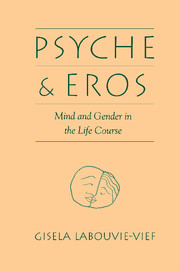1 - Prelude
Published online by Cambridge University Press: 06 July 2010
Summary
THE PARADOX OF MATURITY
Western intellectual tradition has brought us a separation of two aspects of mind and self. On one hand, there is the realm of logos – the realm of logic and objectivity, of all that can be stated in terms of rational truths, of our hope that life can be reduced to laws that are mechanical and precise. On the other hand, there is the realm of mythos – the realm of all that is felt and organic, of that which is private and imaginative, of all that appeals to the inner world of emotions, of our tendency to leap out of the constraints of analytical precision and to seize the novel.
Recognizing that basic duality, thinkers throughout the ages asked which one of these two ways of being was better. Which one is more worthy of our trust? Through which one do we gain access to true knowledge? Which one can lead us on the path to wisdom and enlightenment? Which one ought to describe the mature adult – indeed, human nature at its best?
The answer we inherited from the past is logos. And in accordance with that answer, it has been usual to think of human nature and its development over the course of life in terms of one single theme. For the Greek philosophers and many of their descendants, the knife that would clear the forest of ignorance and expose the path to knowledge and enlightenment was sharpened through training in logic and mathematics.
- Type
- Chapter
- Information
- Psyche and ErosMind and Gender in the Life Course, pp. 1 - 20Publisher: Cambridge University PressPrint publication year: 1994



